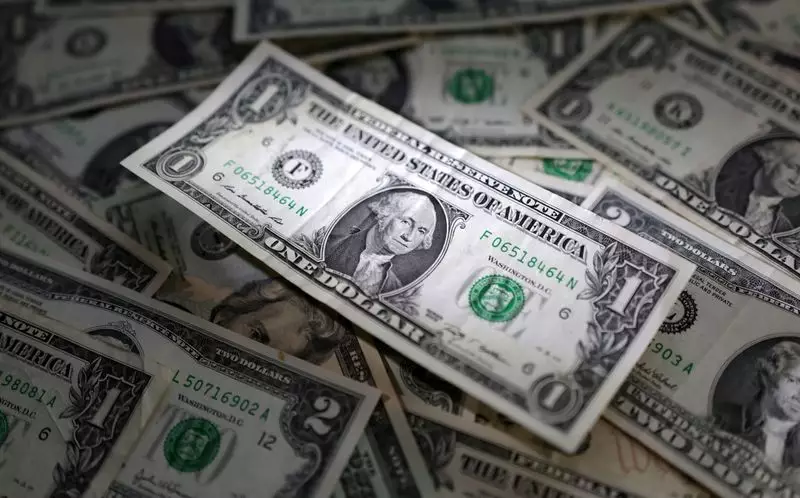The dollar slipped to its lowest point this year against the euro, sparking concern among traders about potential revisions to U.S. payrolls data. The anticipated speech by Federal Reserve Chair Jerome Powell is also adding to the unease in the market. The downward trend of the U.S. currency is evident as it dipped below the 145 yen level and remained close to a more than one-year low against the sterling. The pressure on the dollar can be attributed to the decline in U.S. bond yields, which reached their lowest level since August 5th. Following the unexpected soft monthly jobs report earlier this month, fears of a recession have been looming over the market, leading to a lack of confidence in the dollar’s performance.
The weak payrolls report released at the beginning of the month triggered a surge in volatility across asset classes, prompting traders to brace for potential revisions in the data. The initial report had pushed the market to price in a higher possibility of the Fed cutting interest rates by a half percentage point at its upcoming policy meeting in mid-September. However, subsequent positive macroeconomic data has led to a shift in expectations, with the odds now favoring a quarter-point cut over a larger reduction. Powell’s upcoming speech at the Jackson Hole economic symposium will be closely monitored for any clues regarding the size of the anticipated rate cut next month and the future trajectory of borrowing costs as decided by the Fed.
The U.S. dollar index, which measures the currency against major rivals such as the euro, sterling, and yen, has witnessed a consistent decline in the past few sessions. The index reached a low not seen since January 2nd, reflecting the ongoing downward trend of the dollar. The euro, on the other hand, has shown strength by pushing to its highest level since December 28th, reaching $1.1131. Sterling also experienced a surge, standing at $1.3033, a level last observed in July of the previous year. Against the Japanese yen, the dollar struggled, dropping below the psychological 145 barrier for the first time since early August. These fluctuations in currency values are indicative of the uncertainty prevailing in the foreign exchange market.
Apart from the major currencies, traders are closely monitoring the movements of the Australian and New Zealand dollars. The Australian dollar is hovering just below its one-month high, while the New Zealand dollar has seen a slight increase, reaching a high not observed since July 8th. With the ongoing volatility in the foreign exchange market and impending speeches by key figures such as Jerome Powell, market participants are treading cautiously, anticipating further developments that could impact currency valuations.
The recent performance of the dollar against major currencies, particularly the euro, reflects the prevailing uncertainty and volatility in the market. Traders are closely monitoring key economic indicators and speeches by central bank officials to gauge the future direction of currency valuations. The upcoming Federal Reserve meeting and the subsequent decisions regarding interest rates are expected to have a significant impact on the market and shape the trajectory of the U.S. dollar in the coming weeks.

